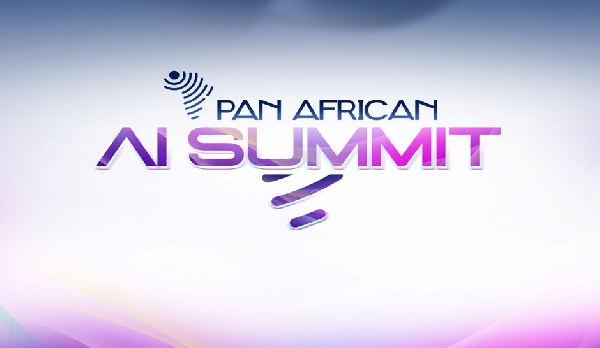Policymakers bet big on Islamic finance to reshape Africa's MSME economy
A new era of growth is beckoning for players in Micro, Small, and Medium Entreprises in Africa following the roll out of a fresh alliance by four organizations—Africa Finance Corporation (AFC), the United Nations Industrial Development Organization (UNIDO), the Accounting and Auditing Organization for Islamic Financial Institutions (AAOIFI), and the Union of Arab Banks (UAB)—to pioneer IFETAA, the Islamic and Arab Finance for Economic Transformation in Africa, the Arab Region and Beyond.
Unveiled at the Hofburg Palace in Vienna during a roundtable on the sidelines of the OPEC Fund Development Forum, IFETAA is designed to channel long-overdue capital and technical expertise into the continent’s most underserved economic engine: Micro, Small and Medium Enterprises (MSMEs).
In a continent where only one in five firms has access to credit, and interest rates often soar above 25 percent, the lack of affordable financing is a persistent bottleneck stifling job creation, innovation, and productivity. Through IFETAA, this narrative is poised to shift.
MSMEs account for more than 80 per cent of businesses across Africa and employ the vast majority of the continent’s workforce. Yet, for decades, they have struggled to access the financial lifeblood required to grow, scale, and compete.
Enter IFETAA, a multi-pronged approach designed to reverse this trend. By integrating Islamic finance principles, capacity building, and policy support, the programme aims to build a robust pipeline of bankable MSME projects, backed by Shariah-compliant financing models.
UNIDO’s Director General, Gerd Müller, underscored this potential, noting, “As traditional development funding continues to decline, Islamic and Arab financial institutions are emerging as key partners in driving industrialization and sustainable development.”
At the core of IFETAA lies a bold new frontier: Islamic finance. Globally worth more than $4 trillion, this asset class remains vastly underutilized in promoting real economic growth in underserved markets.
The programme’s architects aim to tap into this reservoir of capital by directing Islamic finance away from passive monetary markets and toward productive enterprise, especially MSMEs in low- and lower-middle-income countries.
AAOIFI Chairman, H.E. Shaikh Ebrahim Bin Khalifa Al Khalifa, announced this new commitment: encouraging Islamic financial institutions to allocate at least 20 per cent of their loan portfolios—an estimated US$1 trillion—toward MSME development. This capital will be supported by a comprehensive framework of technical assistance, regulatory guidance, and capacity-building resources.
IFETAA will also benefit from UNIDO’s globally recognized Enterprise Development and Investment Promotion (EDIP) model, which has been successfully deployed across various emerging markets to foster entrepreneurship and strengthen local supply chains.
For a continent facing multiple economic shocks—from climate change to inflation—resilience is no longer optional; it is essential. IFETAA’s ambition goes beyond finance—it seeks to restore trust in financial systems, enhance economic sovereignty, and build inclusive economies where MSMEs can thrive.
As Dr. Wissam Fattouh, Secretary General of the Union of Arab Banks, put it: “IFETAA is more than a programme—it is a call to action… We are mobilizing capital not just to fund growth, but to shape the future of our region.”
The Union of Arab Banks brings to the table a network of over 300 Arab financial institutions, helping bridge the capital divide and fostering greater South-South cooperation. By leveraging such powerful platforms, IFETAA creates a financial and diplomatic bridge between Africa and the Arab world.
The programme is not only well-intentioned but also well-resourced. UNIDO has already pledged $500,000 to kickstart IFETAA’s implementation, which is co-led by its Investment and Technology Promotion Office in Bahrain and the UNIDO Task Force on Islamic and Arab Financing.
Meanwhile, AFC is bringing its expertise as an issuer, guarantor, and investor, including its trailblazing use of Islamic finance instruments. In 2017, AFC made history by issuing Africa’s first supranational Sukuk worth $230 million, and recently closed a $400 million Commodity Murabaha facility—a clear signal of the growing appetite for innovative, Shariah-compliant instruments in Africa’s infrastructure and business landscape.
Together, these institutions are aligning development finance with faith-based economic values, proving that spiritual principles and financial innovation can work hand in hand to solve real-world challenges.
As the IFETAA programme rolls out, its true test will lie in its ability to deliver meaningful change on the ground: empowering entrepreneurs, especially women and youth, to launch and grow businesses; equipping them with financial literacy and tools; and transforming them into resilient pillars of Africa’s economy.
By tackling both capital access and capacity gaps, IFETAA is setting a bold precedent. It is not just about funding MSMEs—it is about redesigning finance to serve people, not just profits. And in doing so, it may well become a model for global development finance in the decades ahead.
Islamic finance takes center stage as Africa embraces change










